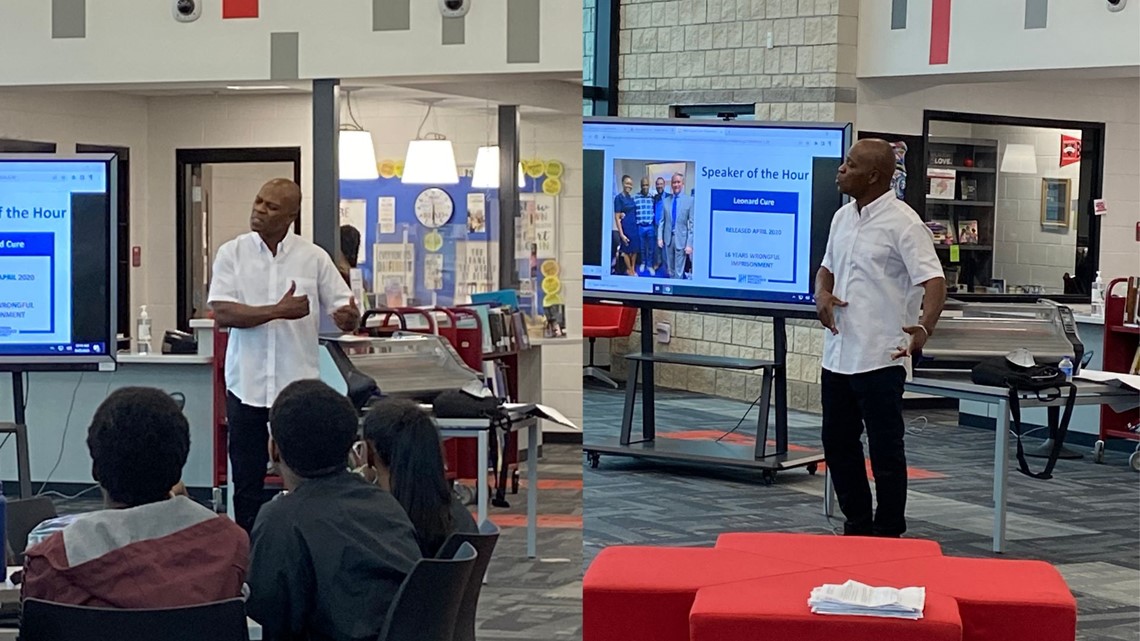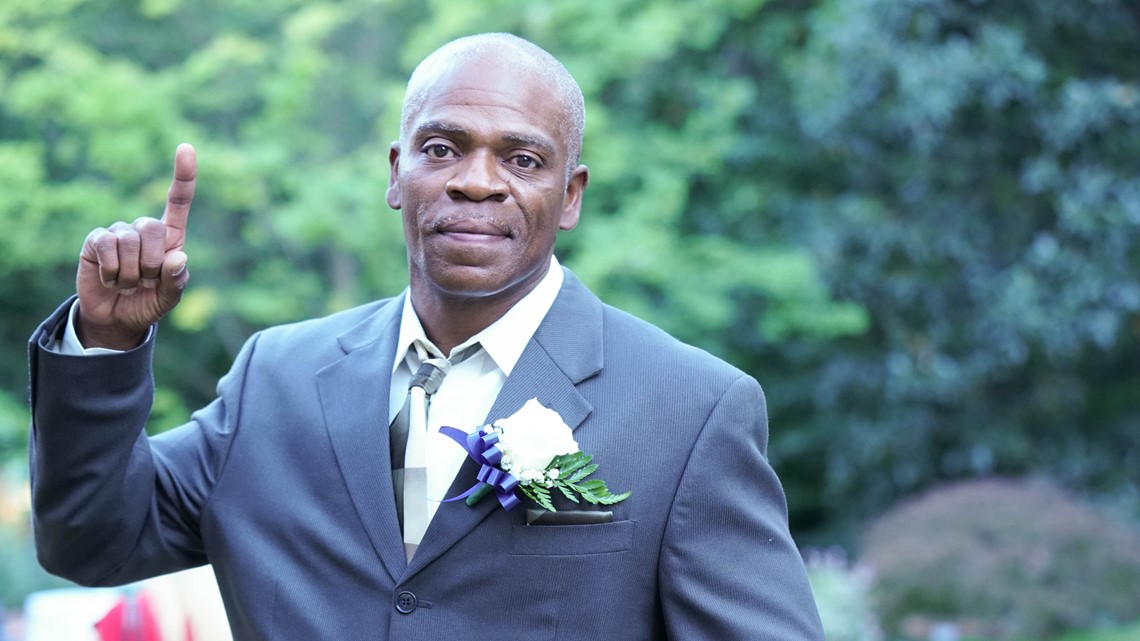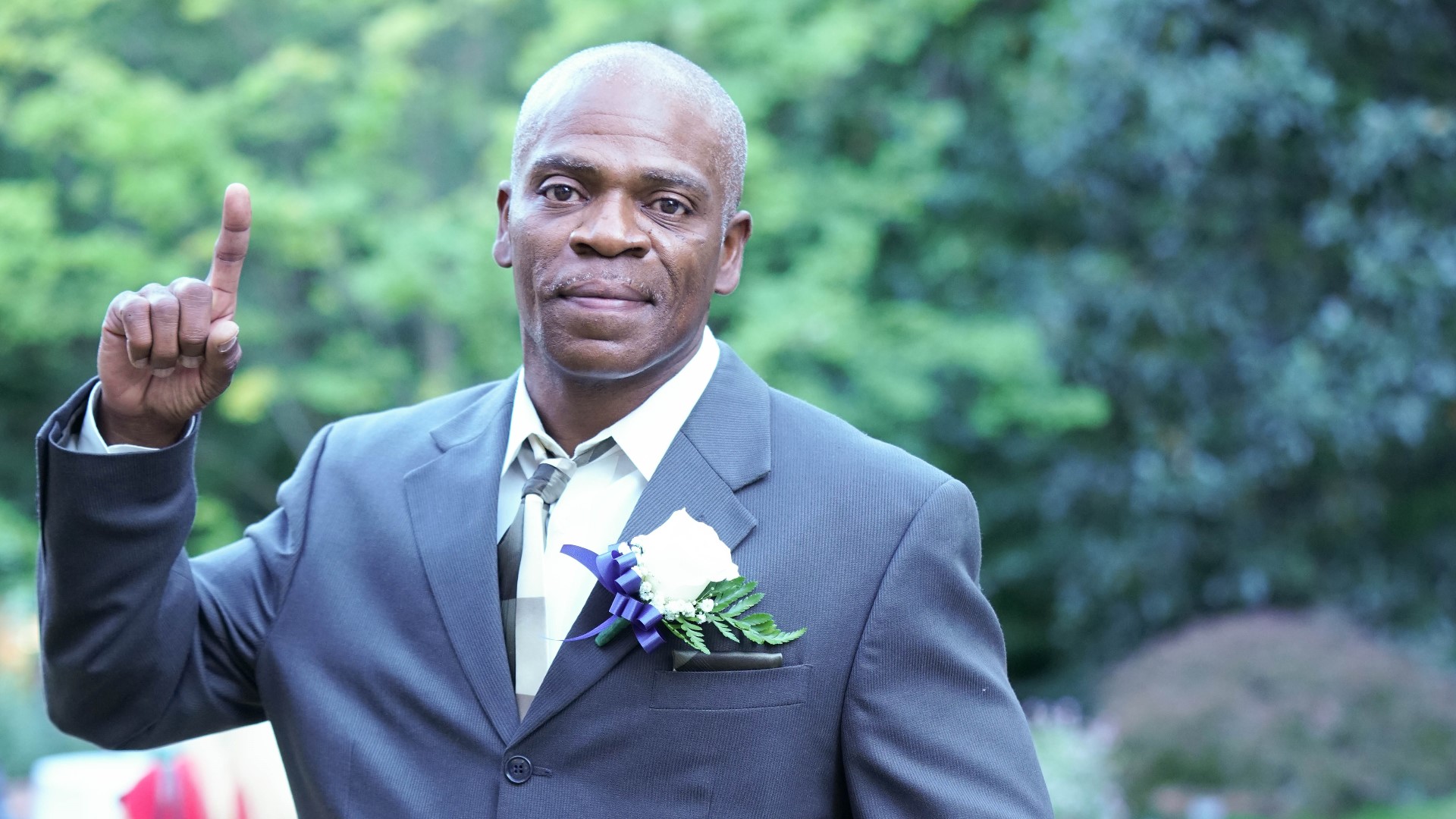ATLANTA — Those who knew 53-year-old Leonard Cure are still in disbelief. The metro Atlanta man was fatally shot by a Georgia deputy during a struggle following a traffic stop in Camden County on Monday.
Cure had previously spent 16 years of his life trying to get someone to listen to him as he maintained his innocence behind bars in several Florida prisons.
He was wrongfully convicted after two trials. A mistrial was declared during his first trial after a jury couldn't come to a unanimous decision. A plea deal was offered in the case where Cure was accused of robbing a Walgreens in Dania Beach, Florida, at gunpoint on Nov. 10, 2003.
During his second trial, only one of the two witnesses in the case testified and told the jury that he wasn't sure if Cure was the robber. In the end, Cure wound up being found guilty and was sentenced to life in prison for armed robbery and assault with a firearm.
Cure appealed his conviction. He was denied multiple times. Then in 2019, Cure reached out to a newly created Conviction Review Unit of the Seventeenth Judicial Circuit to request his case be re-investigated. Once his case was reviewed by the unit, they reached out to the Innocence Project of Florida.
On April 14, 2020, he was released on time served. A judge vacated his convictions months later on Dec. 11, 2020. Three days later, his charges were dropped. Cure was finally a free man.
Following his release, Cure moved to Georgia to get a fresh start on life. This is where he crossed paths with the Georgia Innocence Project -- becoming part of their freed and exonerated community.
On Sept. 29, Cure gave his first speech to a group of students at Jonesboro High School on Wrongful Conviction Day. Christian Stegall, who is the Community Engagement Manager with Georgia Innocence Project, helped prepare Cure for his presentation about his wrongful arrest and wrongful conviction.


"He had so much ahead of him," Stegall explained.
Stegall got to know Cure and said that he was just about to buy him a housewarming gift for his new place in Fairburn.
"He was in the middle of moving into his new house that he had just purchased," Stegall said. "He was excited about that."
Stegall said Cure was also excited to get in front of those students in Jonesboro and share his experience in hopes that it would impact them to want to possibly get involved in law to help people like him who were wrongfully convicted.
He recalled Cure explaining to the kids that when he was originally pulled over, he was compliant with the police.
Stegall's colleague, Olivia Vigiletti, an attorney with the Georgia Innocence Project, pointed out that "he trusted a wrongful arrest before he wasn't released for 16 years."
Vigiletti said Cure thought he would be able to explain that he wasn't the robber and that they got it all wrong. But as we now know, that wouldn't be the case.
"What happens when that trust is betrayed, and you are compliant and you go to prison for something you didn’t do?" Stegall asked in reference to Monday's traffic stop that led to his death.
On Monday, Cure was on his way back to Georgia from visiting his mom in Florida when he was pulled over by a Camden County deputy for allegedly speeding on Interstate 95 near the Georgia-Florida line.
A confrontation between Cure and the deputy caught on dash camera video and body camera video led to a struggle in which Cure was shot and killed.
RELATED: Georgia sheriff's office releases video of traffic stop before deputy shoots exonerated man
As to what the video shows, Stegall and Vigiletti both said they don't plan to watch it, but they hope people show empathy for Cure considering what he'd been through prior to this traffic stop.
"We know exonerees are traumatized people," Vigiletti said. "They’re terrified of even routine interaction with the police and it’s because of all the things they’ve been through."
On Wednesday, Cure's family held a news conference in Camden County. His mom talked about some of the trauma her son endured while behind bars.
"Leonard did all that time. He was assaulted, he was stabbed in his back -- pretty near his kidney," Mary Cure explained of what her son experienced while in prison.
"My brother mattered to us," his brother, Michael Cure said. "He had dreams, aspirations and goals."


Cure had just recently been compensated a little more than $800,000, totaling around $50,000 for every year he was incarcerated. Vigiletti said they just learned some of his compensation included funded education which she said he had possible plans to even go to college.
The deadly shooting is under investigation by the Georgia Bureau of Investigation. The deputy who shot Cure hasn't been identified but is on paid administrative leave which is protocol any time an officer or a deputy is involved in a shooting.

